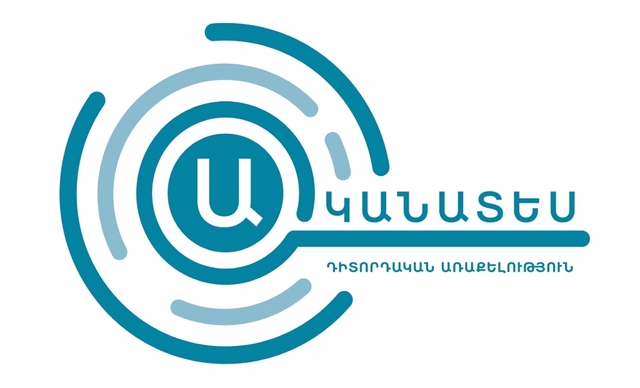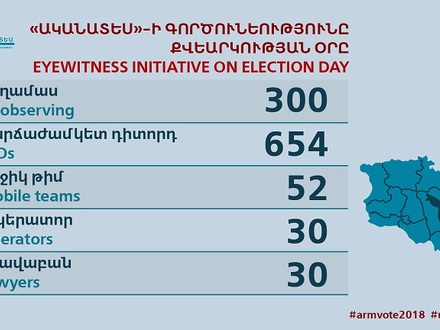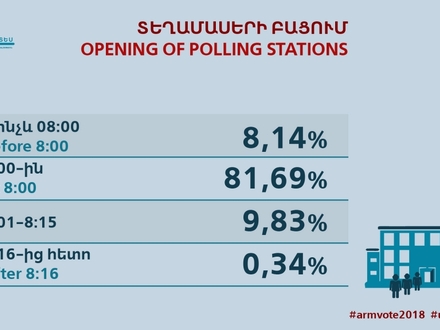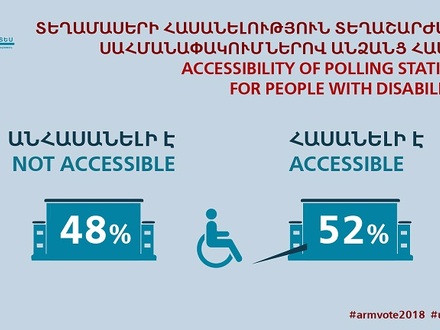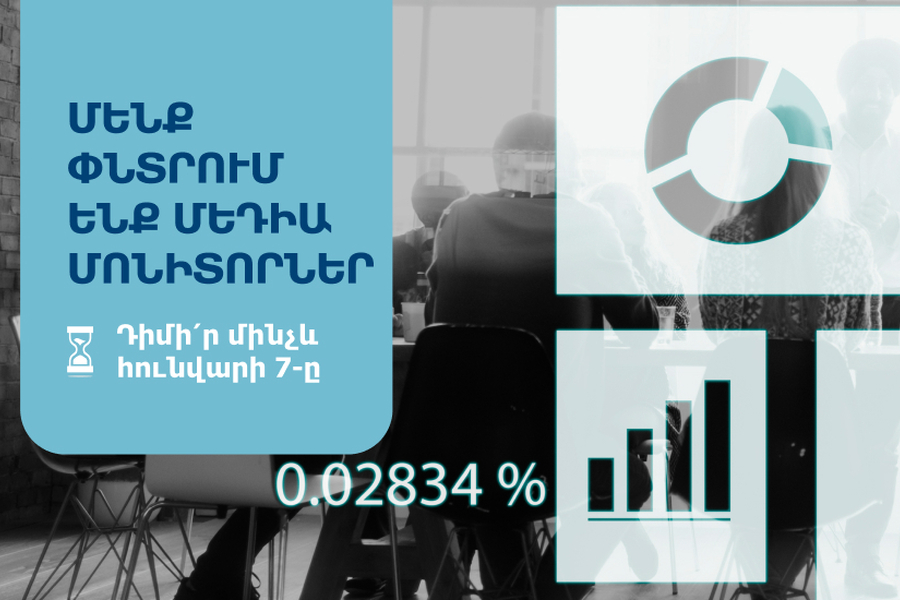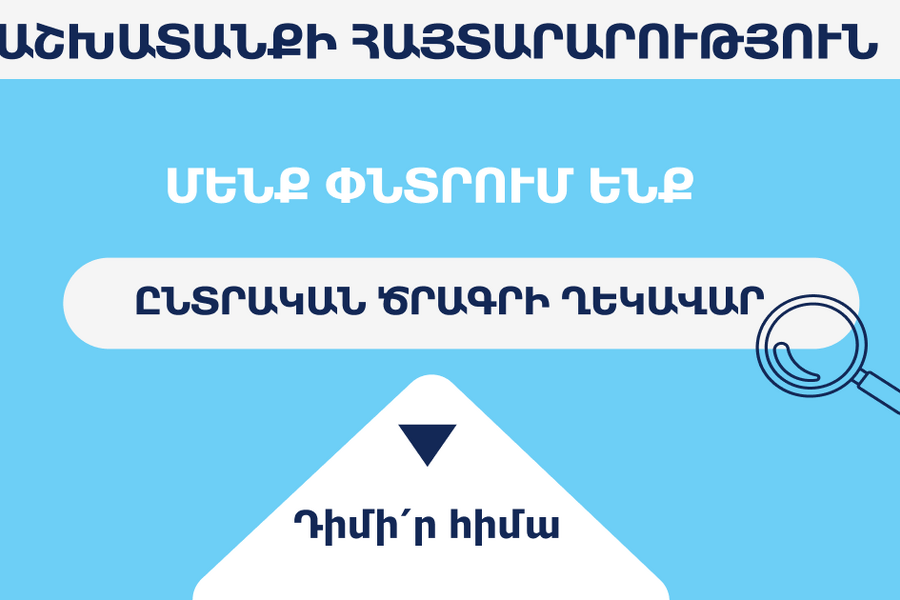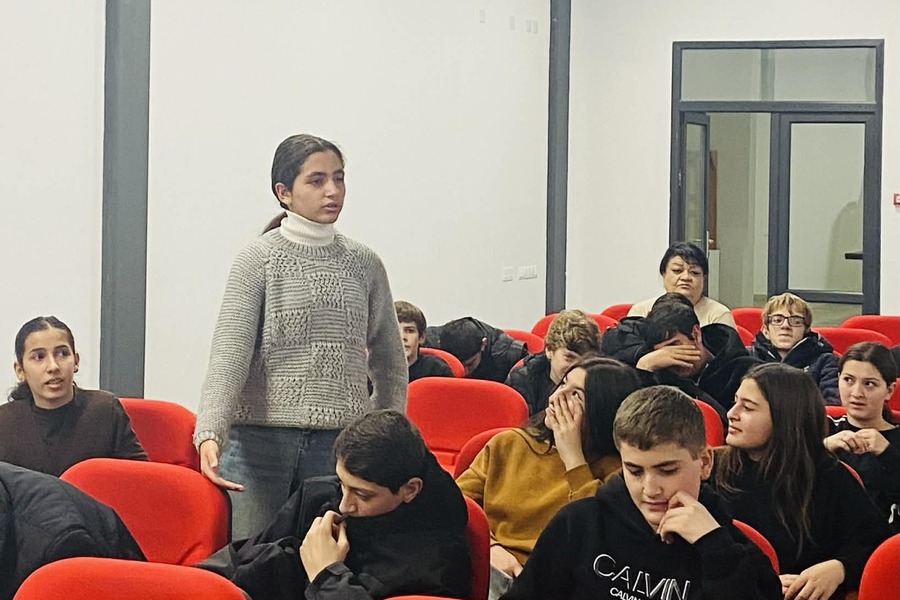Akanates Observation Mission December 9, 2018 Snap Parliamentary Elections
December 9 is the international day of the fight against corruption, and it is symbolic that on this day, after a long period, this is the first time that Armenian citizens have the opportunity to freely express their will to choose a representative parliament.
Akanates is implementing election observation in all regions of Armenia on December 9, 2018. For the first time in Armenia, Akanates is deploying observers using the sample-based observation (SBO) methodology, which oversees the election process using a random, representative sample of polling stations. Using statistical methods, the sample is able to accurately measure the quality of election day processes, including polling station setup, opening, voting, closing and counting processes, nationwide.
Although observers are not present in all polling stations across the country, the selected statistical sampling methodology provides an opportunity to assess and speak to the conduct of election day processes in the entire country.
As part of the initiative, 600 observers were deployed to the sampled 300 polling stations across the country, along with 52 mobile observer teams. The observation mission is also supported by 30 lawyers and 30 operators.
Key Findings
As of 9:00 am, Akanates has received reports from 100% of sampled polling stations.
There were no major problems with access of Akanates observers to polling stations. All observers have freely entered the polling stations to observe the set up and opening processes.
Observers found that polling station officials largely followed the necessary voting preparation procedures, and that the processes in the morning were without any significant incidents. In 96% of polling stations, there was a necessary quorum of commission members present at the preparation for voting while the presence of unauthorized persons was observed at 1% of polling stations. In 98% of polling stations, the safe deposit box requirements were followed, as well as the ballot box requirements at 99% of polling stations. The lottery procedure was followed at 99% of polling stations.
No campaign materials of any participating political party were found in polling stations. A total of 96% of polling stations followed the furniture set up requirement to protect the secrecy of the voting (4% of the stations encountered problems here, which were later resolved). Observers found that 48% of polling stations do not fulfill the required accessibility criteria for persons with disabilities.
The majority of polling stations were opened on time: only 8.33% were open before 8:00 am, 9.67% in the period from 8:01 to 8:15 am, and 0.33% after 8:16 am, while the rest (81.67%) were open on time at 8:00 am.
Critical Violations
Instead of reporting for every single minor incident, Akanates in now reporting on incidents which might have a serious impact on the electoral process.
During the voting preparation and opening of polling stations, observers reported 17 violations, which are currently under scrutiny.
Observers will remain at their assigned polling station until closing and counting of ballots is complete. Observers will continue to maintain contact with the call operators and lawyers based in Yerevan, and will report key findings and critical incidents throughout the day.
The Akanates (Eyewitness) is a domestic, non-partisan observation initiative founded in 2018 by Transparency International Anticorruption Center, Journalists’ Club Asparez and Restart Civic Initiative. Its main goal is to promote free and fair elections and the improvement of the electoral process and institutions in Armenia.
Akanates next statement will be released at 3:00 pm on December 9, 2018.
Press Contact
Levon Barseghyan
Phone: 091 821363
This mission is made possible by the financial support from the European Union, National Endowment for Democracy, United States Agency for International Development, National Democratic Institute and Open Society Foundations – Armenia.
The contents are responsibility of “Akanates” (Eyewitness) observation initiative and its member organizations and do not necessarily reflect the official views of donor organizations.


